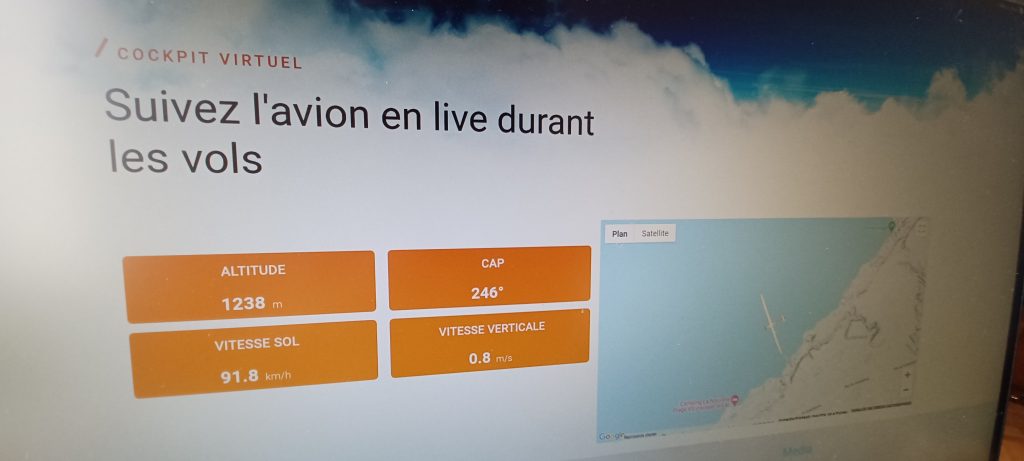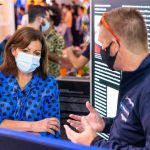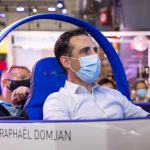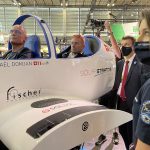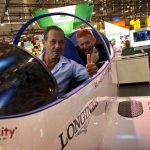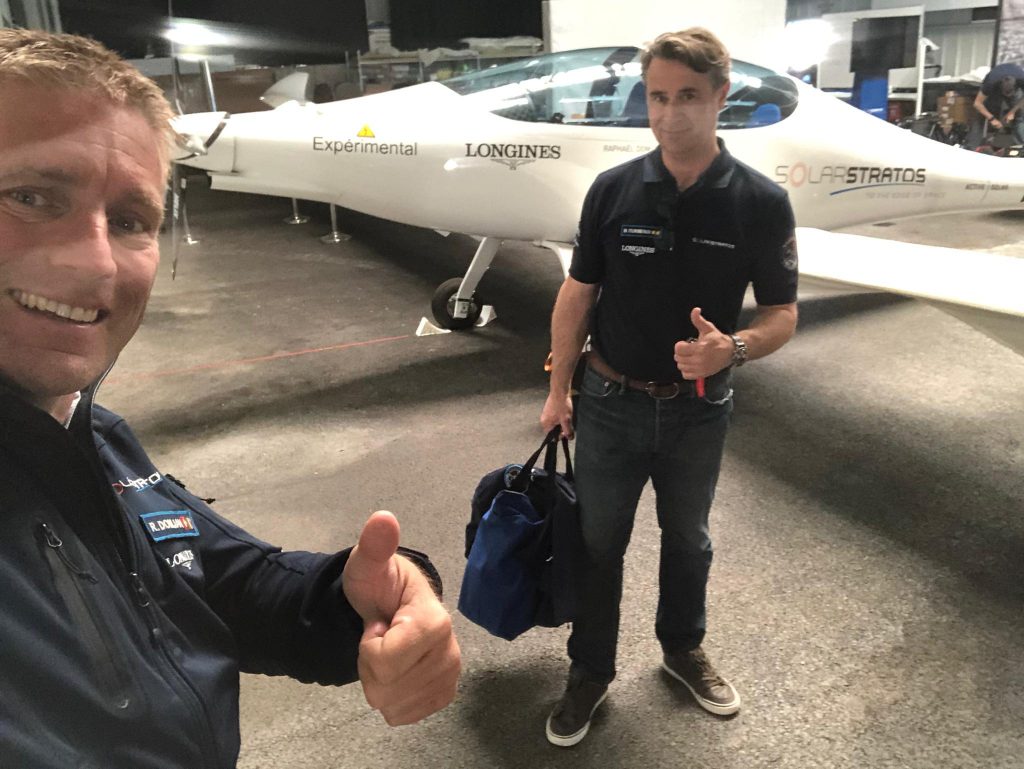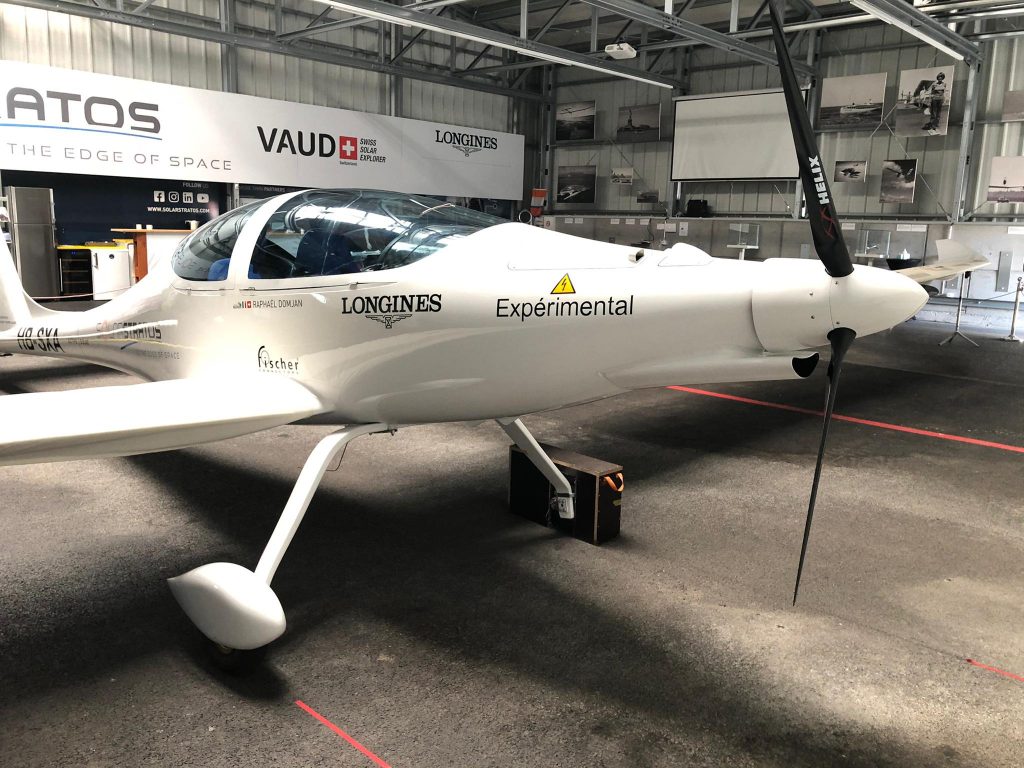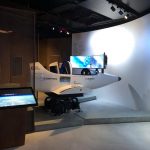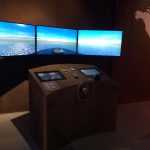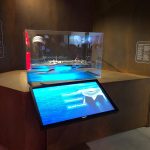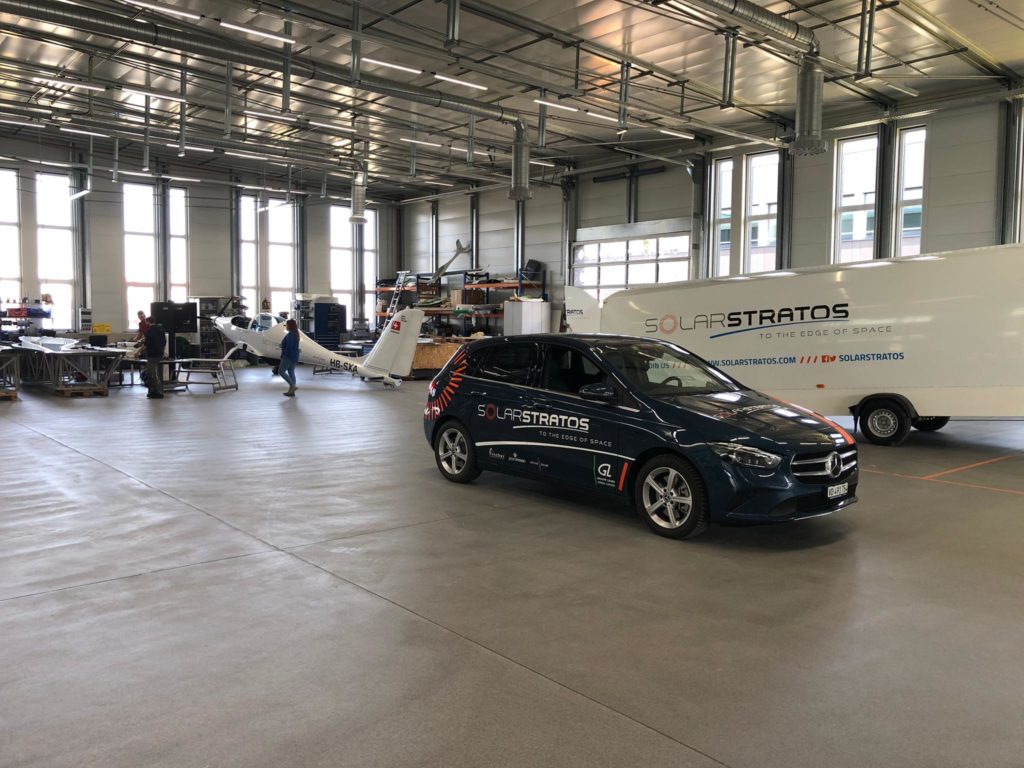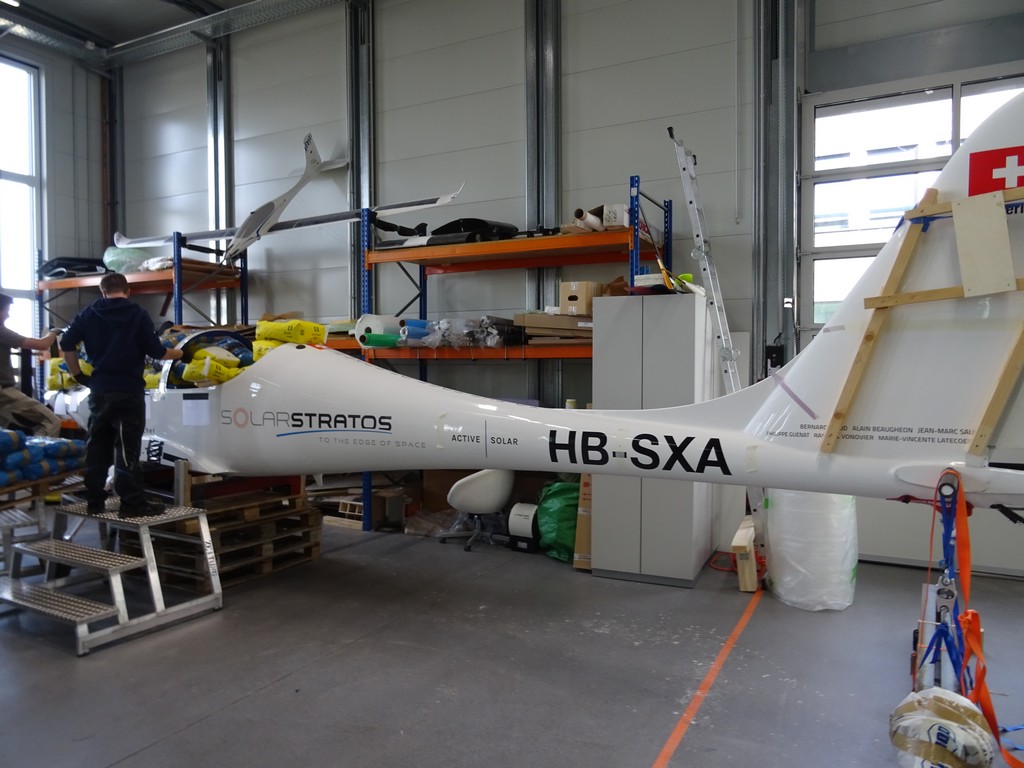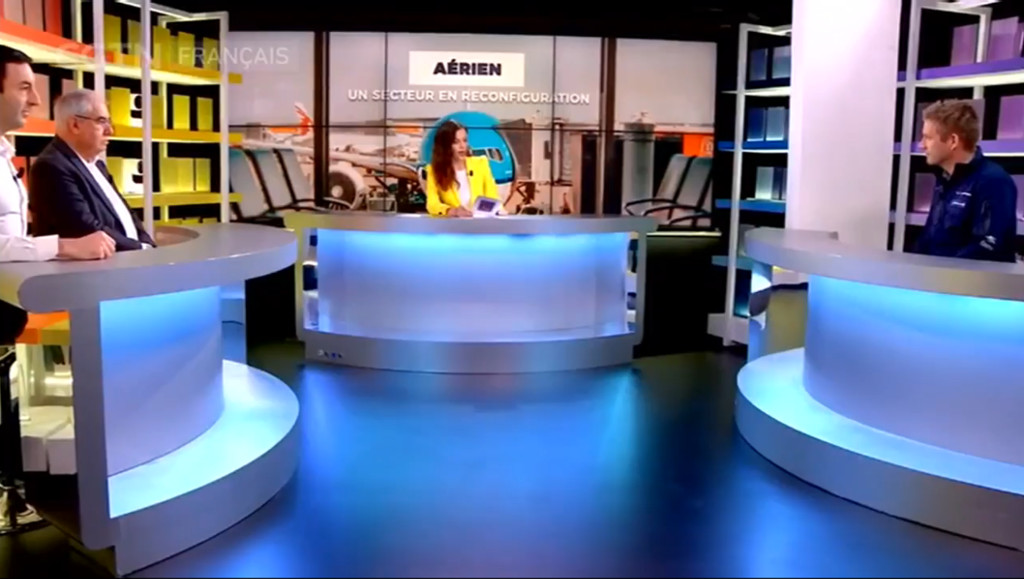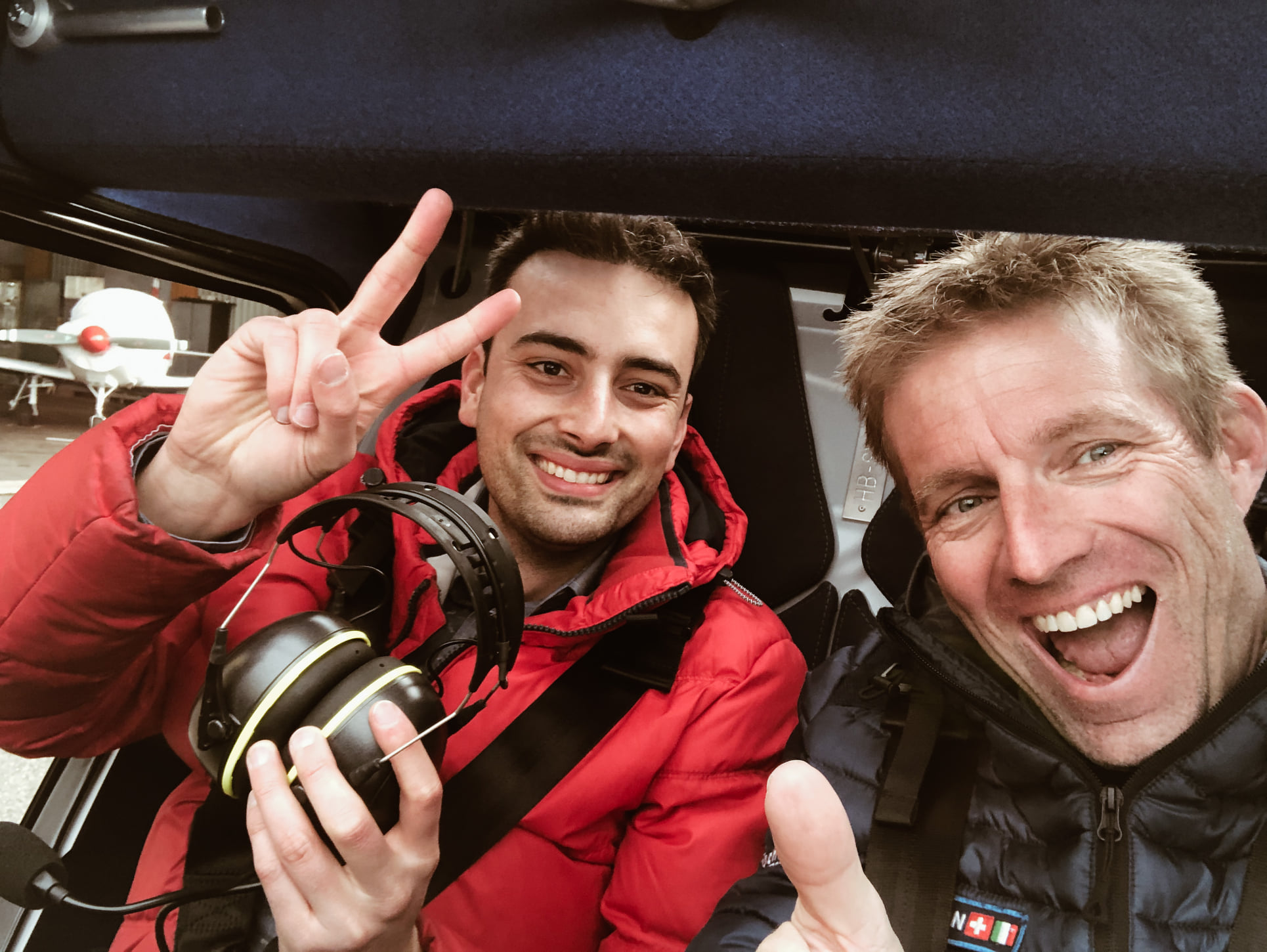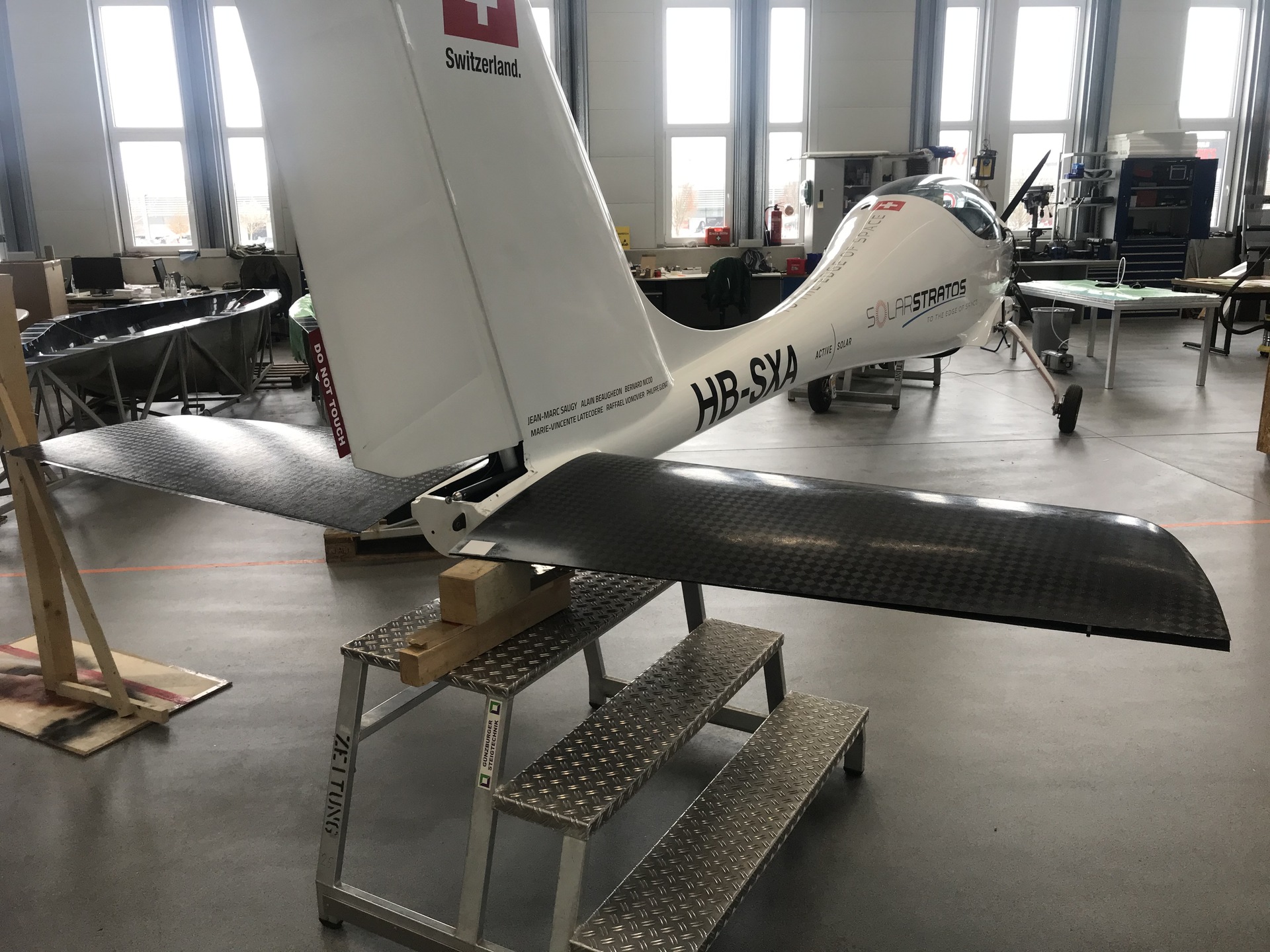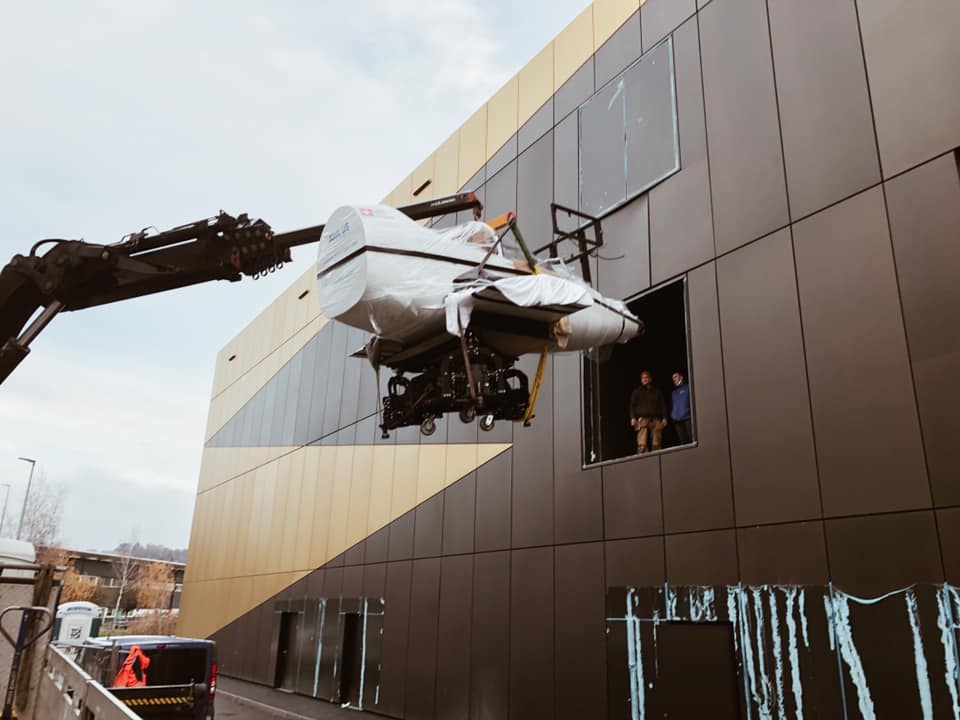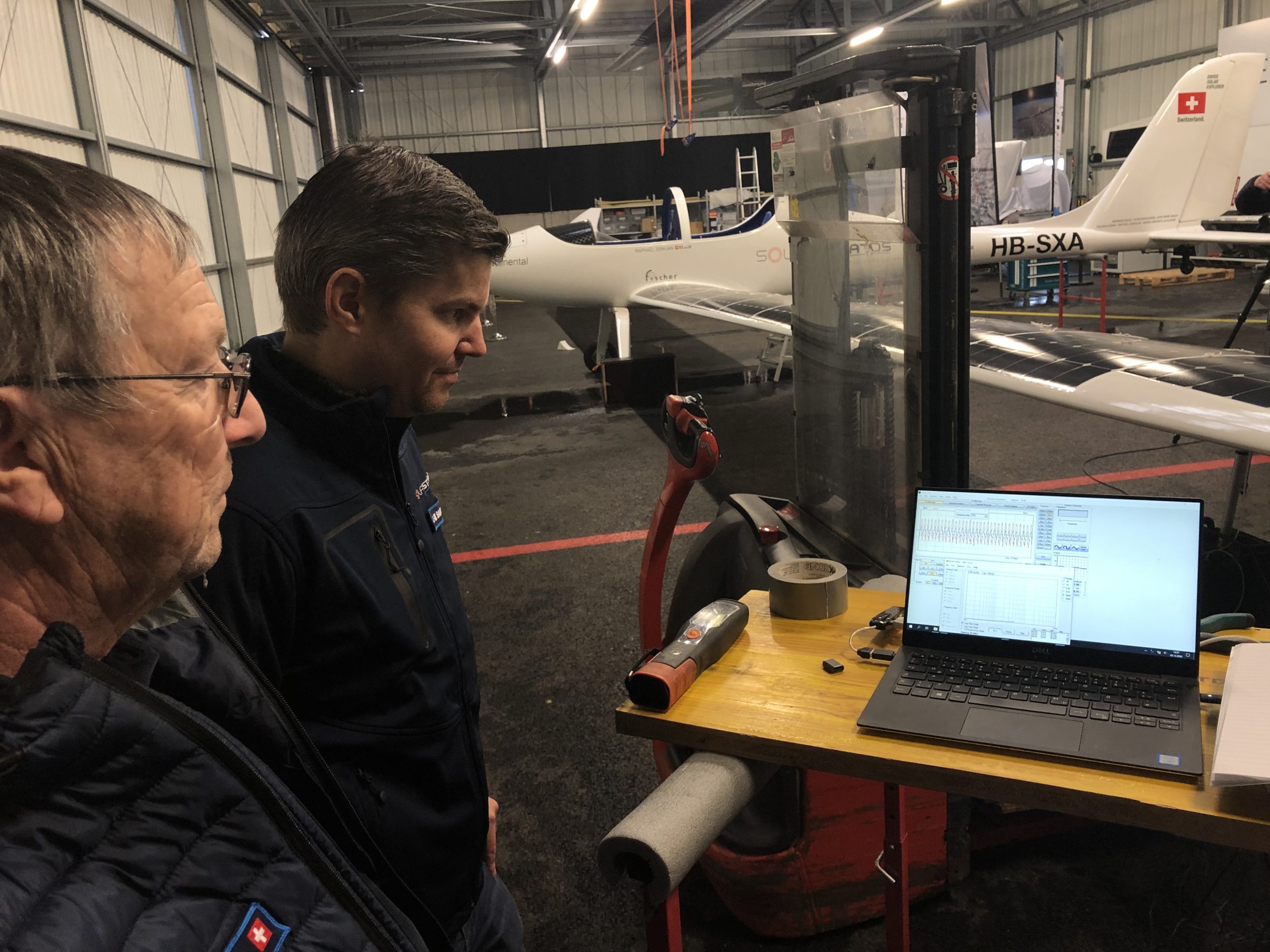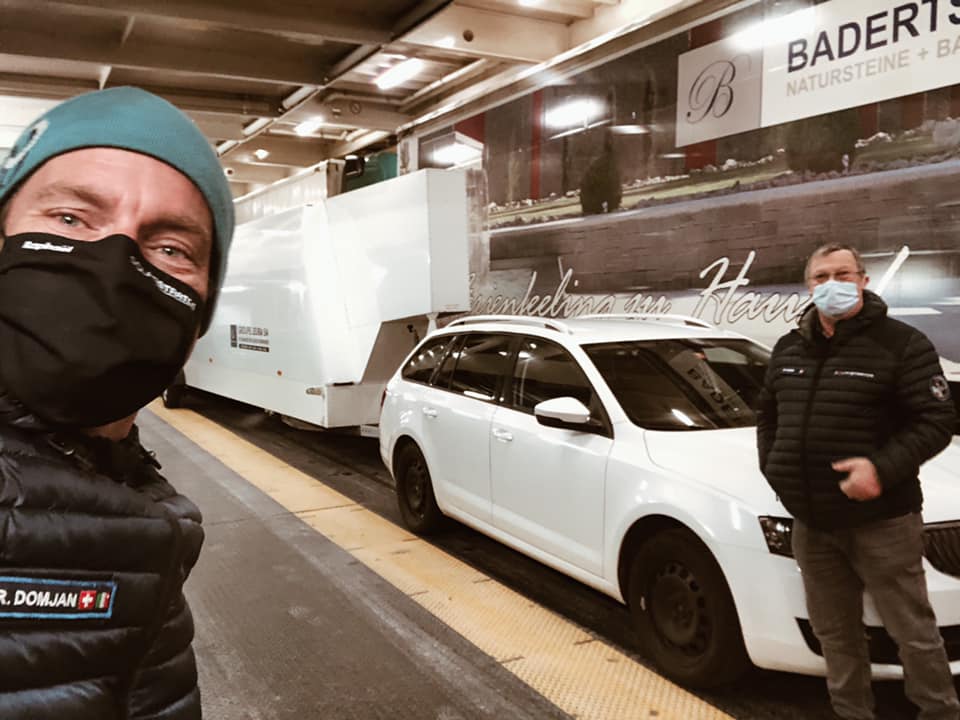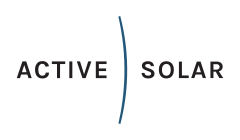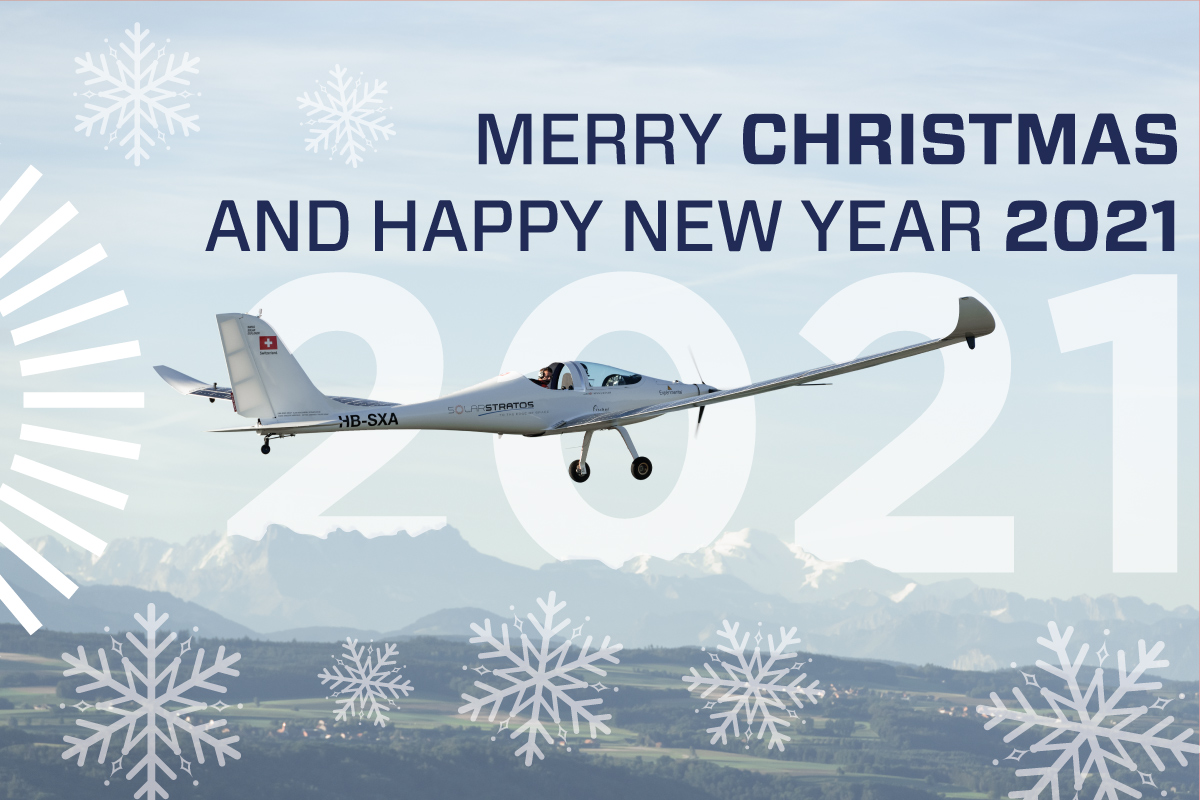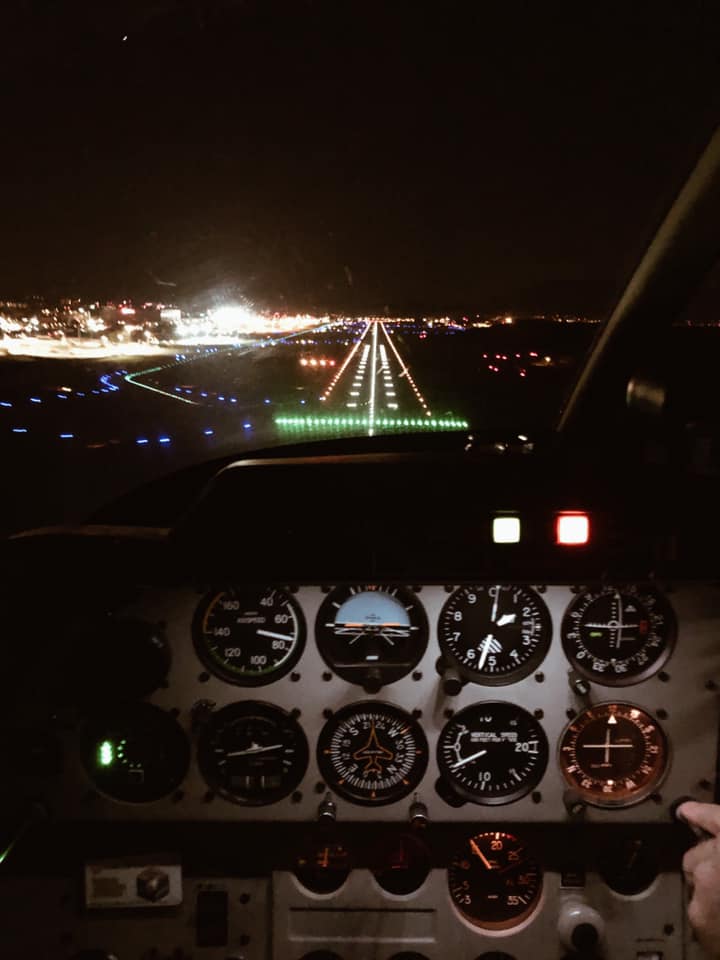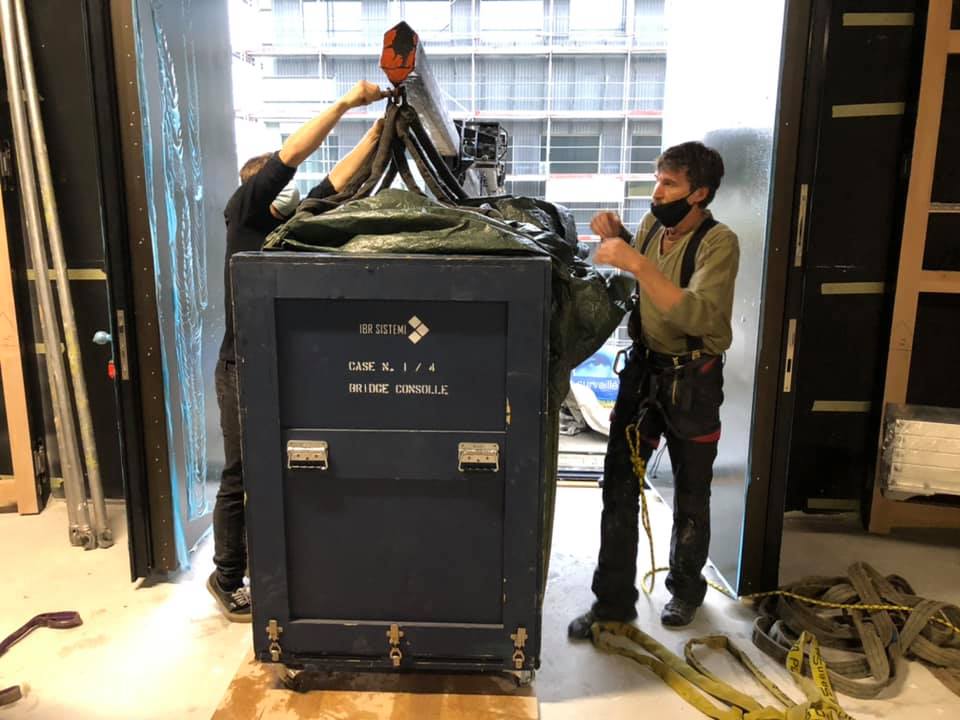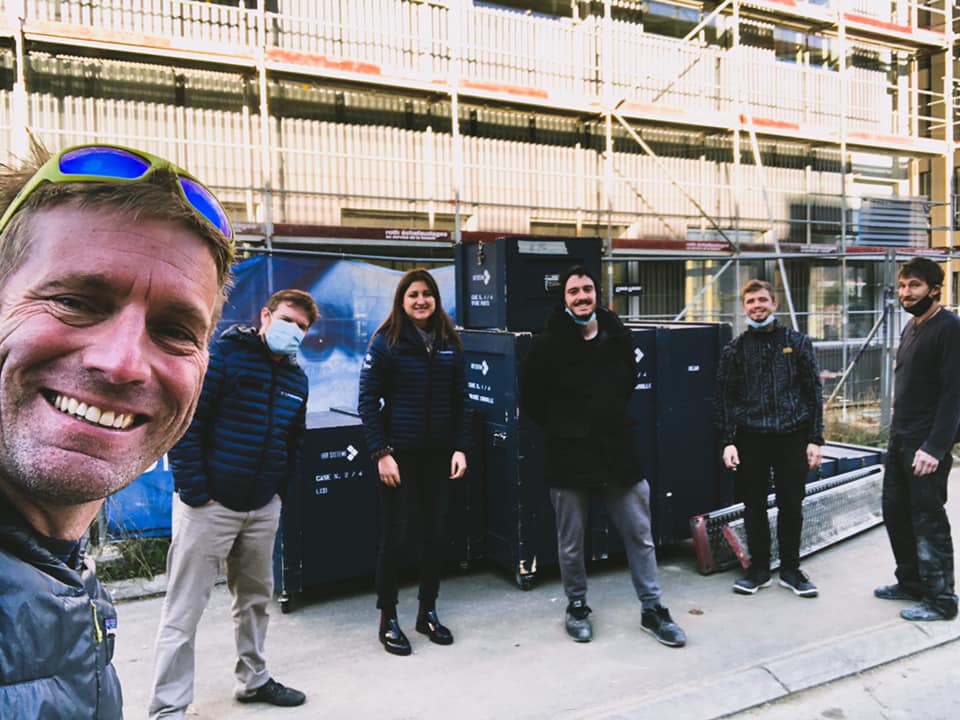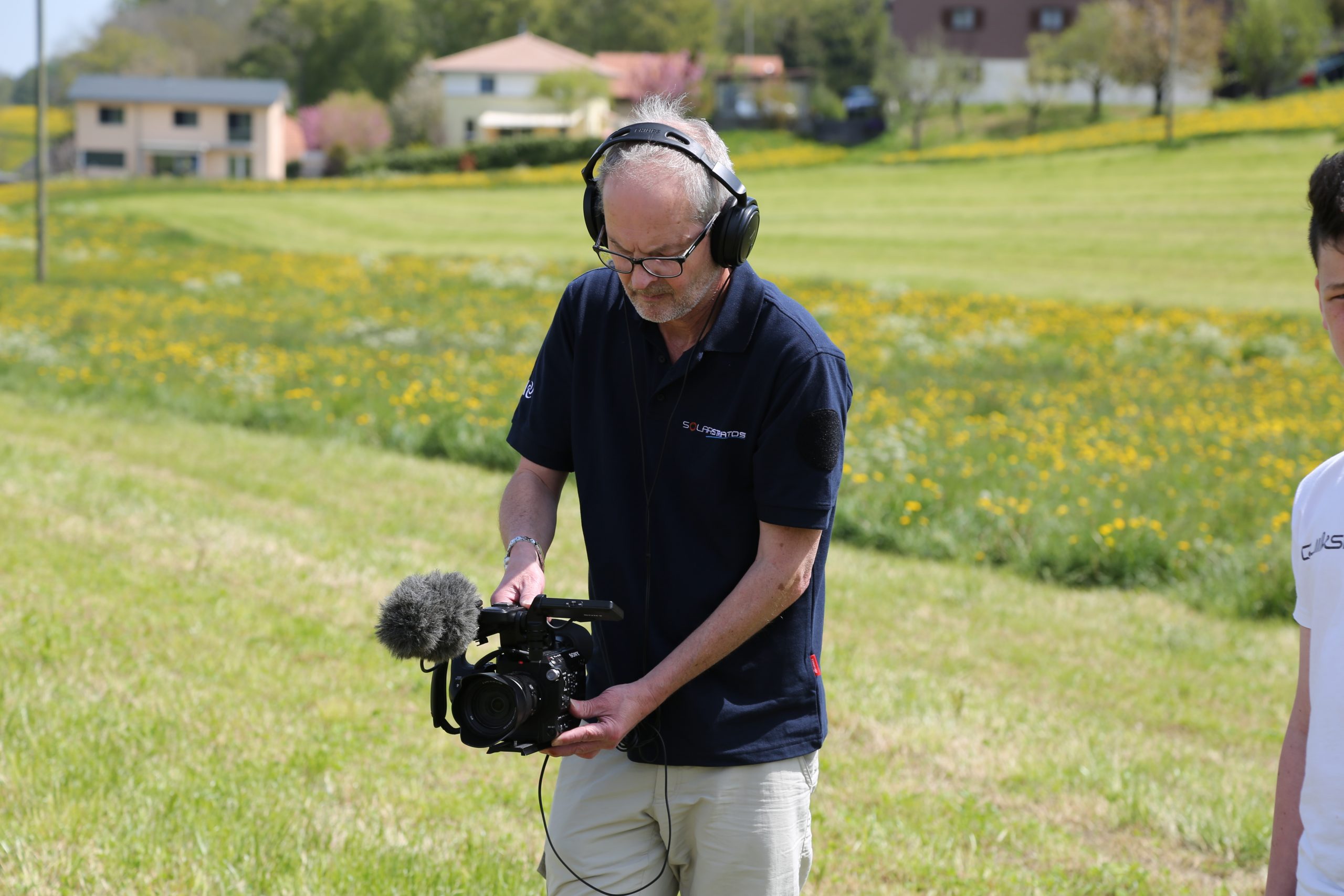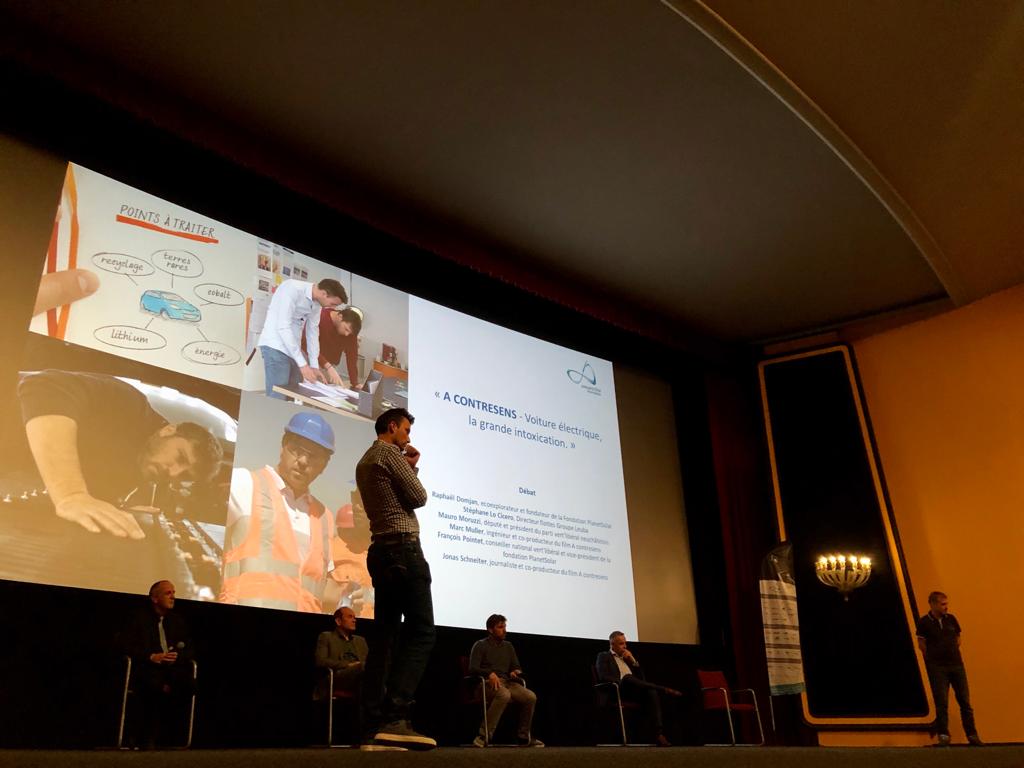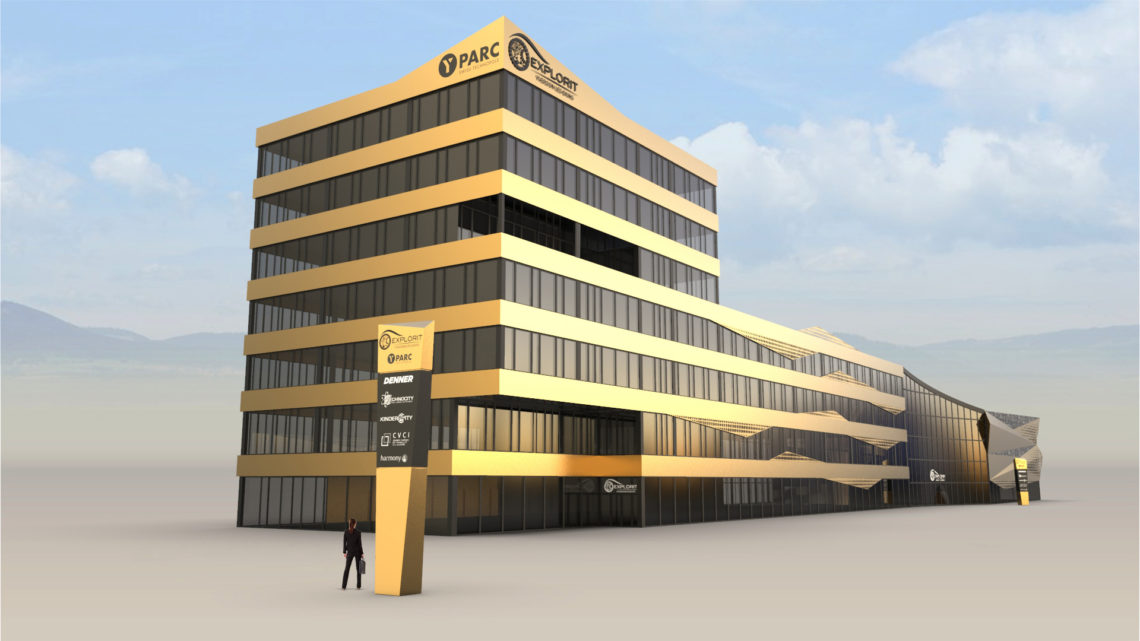First flight using the space suit!
Despite very little sunlight, SolarStratos is back in the air and flying with Raphaël Domjan at the controls of the aircraft under the close supervision of test pilot, Miguel A. Iturmendi. Between them, they have completed more than 10 test flights this year, two of which have lasted over an hour.
Raphaël wore the special space suit designed by our Russian partner, Zvezda, for the first time in flight this summer, and although the suit was not pressurised, it was a great opportunity to familiarise himself with the clothing that will protect him from extreme temperatures when he reaches the stratosphere. The trial went without a hitch!
“I am very happy to have been able to test the space suit in flight. Of course, I will need to get used to wearing it; the feeling and mobility of your arms, hands and legs is quite different, but the team always does such an incredible job of allowing us to evolve with every flight. It’s awesome!”
- SolarStratos – Raphaël Domjan, pilot. Payerne, Switzerland, 17.08.2021 © Fred Merz | Lundi13
Raphaël supports the Swiss Solar Boat team
As godfather to the Swiss Solar Boat team, Raphaël travelled to Monaco this summer, to congratulate the EPFL and HEIG-VD collaboration for their second place at the International Monaco Solar and Energy Boat Challenge. It was a great opportunity for our eco explorer to convey the support of the PlanetSolar Foundation and to return to the principality that hosted the departure and subsequent return of the pioneering catamaran during its first solar-powered circumnavigation.
For more information, please go to the Swiss Solar Boat website: https://swisssolarboat.ch
De St-Exupéry flies electric
History is beautiful and it is being written now! For the first time, Hervé de St-Exupéry, grandnephew of Antoine, and a writer, poet, and aviator in his own right, flew onboard an electric aircraft, accompanied by Raphaël Domjan, who is a big fan of Le Petit Prince! It was a special moment for Raphaël who grew up on the stories of Antoine de St-Exupéry’s Le Petit Prince and which gave him his passion for flying, ever higher and ever further.

Raphaël Domjan and SolarStratos become social media stars!
The July edition of L’Illustré featured a ‘best of Instagram’ story that published a photo from Raphaël’s Instagram account of Raphaël and Anne Hidalgo, Mayor of Paris, attending the Viva Technology Show earlier this year.
Don’t miss a moment of our extraordinary adventure, join us on social media! Even our social media platforms are solar powered, as we use the hosting site that was created by Raphaël and Alexis Domjan 20 years ago, called horus.ch!
Follow us: @SolarStratos
Fly with us – LIVE!
The SolarStratos team has a Mission Control Centre located at the heart of the operational base in Payerne fitted out with a LIVE Cockpit so that the team can follow the progress of the aircraft in flight.
This LIVE Cockpit is now available to all via our website: www.solastratos.com. Please feel free to come and experience solar powered flight in real time!
A solid partnership with Marti Arc Jura!
Welcome onboard to Marti Arc Jura, who joins our solar adventure as an Official Supplier! We are delighted to have the support of this subsidiary of the Marti Group that was founded 100 years ago in Bern and whose philosophy is to maintain lasting relationships with all its service providers and its environment.
Marti Arc Jura has dared to innovate and invest in ecological techniques and technologies for many years. They built the first concrete solar plant in Switzerland, and they recover and recycle materials to provide products that are more environmentally conscious. These values unite us to meet the challenge of the transition to solar energy.
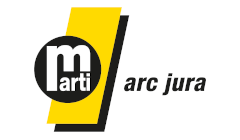
New Main Partner
Longines and SolarStratos are proud to announce a new alliance that names Longines Main Partner and Official Timekeeper of the eco-adventure. Driven from the outset by a pioneering spirit, the company based in Saint-Imier in Switzerland, has developed watches that through their reliability, precision, solidity, and the technologies used, have contributed to the success of a number of exploits. As SolarStratos embarks on a series of high-altitude flights, having Longines’ support in the conquest of the stratosphere using solar energy is invaluable.
Recognised for the reliability of its precision instruments, the winged hourglass brand has accompanied exploration missions to the final frontiers, faced extreme weather conditions, sailed rough seas, and participated in the opening of airways and in setting aviation records. Legendary aviators and explorers, such as Amelia Earhart, Paul-Emile Victor, Elinor Smith, and Howard Hugues, all placed their trust in Longines during their journeys.
Today, Longines remains faithful to its pioneering spirit in teaming up with Raphaël Domjan, the man behind the SolarStratos Mission, and holder of several records achieved using solar energy. The eco-explorer and pilot is delighted with the new partnership with Longines: “We are happy that Longines, a brand that has accompanied so many legendary adventurers in their exploits, is now Main Partner of the SolarStratos odyssey!”
For Matthias Breschan, CEO of Longines, getting involved in a project such as SolarStratos is innovative and full of promise for the new generations: “We want to encourage future generations to surpass themselves, because being a pioneer is above all a state of mind and that is still the case today. Bringing together courage and mental strength makes it possible to overcome obstacles and push back frontiers. We are very happy to be part of this magnificent solar adventure.”
SolarStratos would like to thank Longines for their trust and support and looks forward to continuing the eco-adventure alongside them.
We would also like to thank all of our other loyal partners, without whom, our eco-adventure would not be possible.
Press release
Longines website
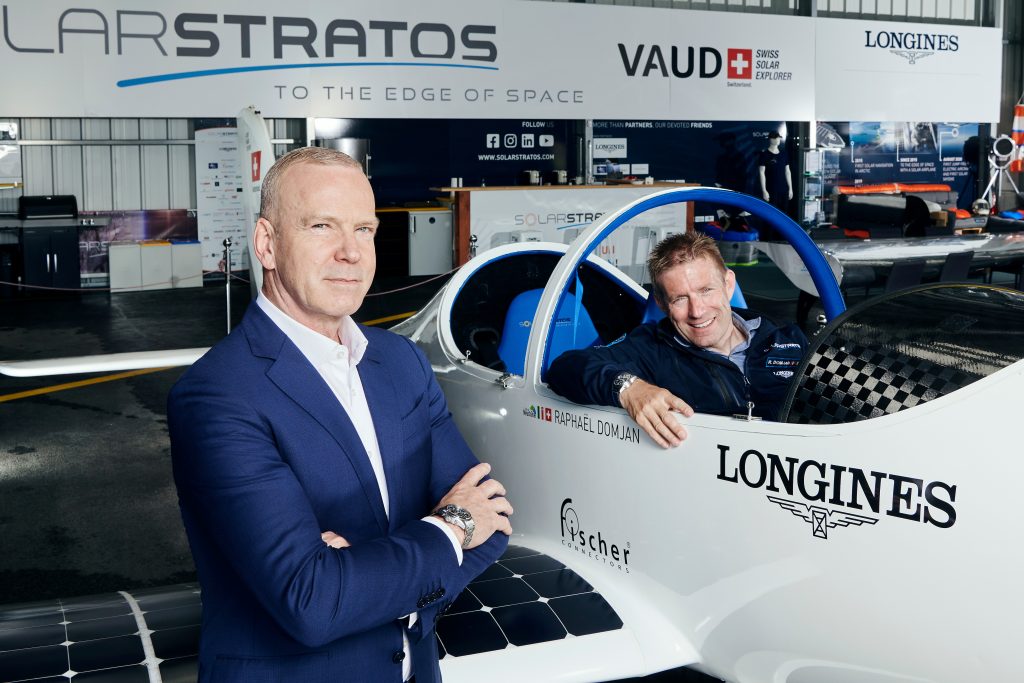
Viva Technology Paris
For four days in June (16-19), the SolarStratos team relocated to Paris to participate in the Viva Technology event, hosted at the Palais des Expositions in Porte de Versailles. The gathering provided a great opportunity to present the project to all sorts of personalities from the political sphere, in particular, Anne Hidalgo, mayor of Paris and Jean-Baptiste Djebbari, French Minister of Transport.
The team was also able to present SolarStratos to a number of eco-adventurers, such as, Bertrand Piccard, the Swiss scholar and explorer and Patrice Franceschi, a French writer and adventurer. An invitation to fly the simulator with Raphaël Domjan rounded of the experience and a good time was had by all.
The Birth of a Dream – Part 1
“The Birth of a Dream”, a documentary directed by Stéphane Chopard that tells the story of our eco-adventure from its very beginning, right up until today, was broadcast on RTS 2 a few days ago.
The team, the partners, the innovation, the technology, the ambition, the emotions… The documentary brings together all the elements that make up SolarStratos and presents them in 52 minutes that will make you dream big.
Thank you to the director, as well as all those who contributed to the production and made it possible to film such exceptional images behind the scenes of this great adventure.
Link to the documentary (Available for a limited time only)
Raphaël Domjan on France Télévisions
Our eco-explorer was invited to contribute to the “We Europeans” show on the topic of electric aviation and its potential for evolution.
You can watch the France 3 broadcast here
Alan and Raphaël unite for a good cause
They share a common passion: adventure. And they are the first to lend their support whenever they can.
Alan Roura and Raphaël Domjan recently joined forces for a 7km trip through Lavaux in support of the ELA Association (European Leukodystrophy Association). This was carried out in collaboration with PEMSA, our loyal partner.
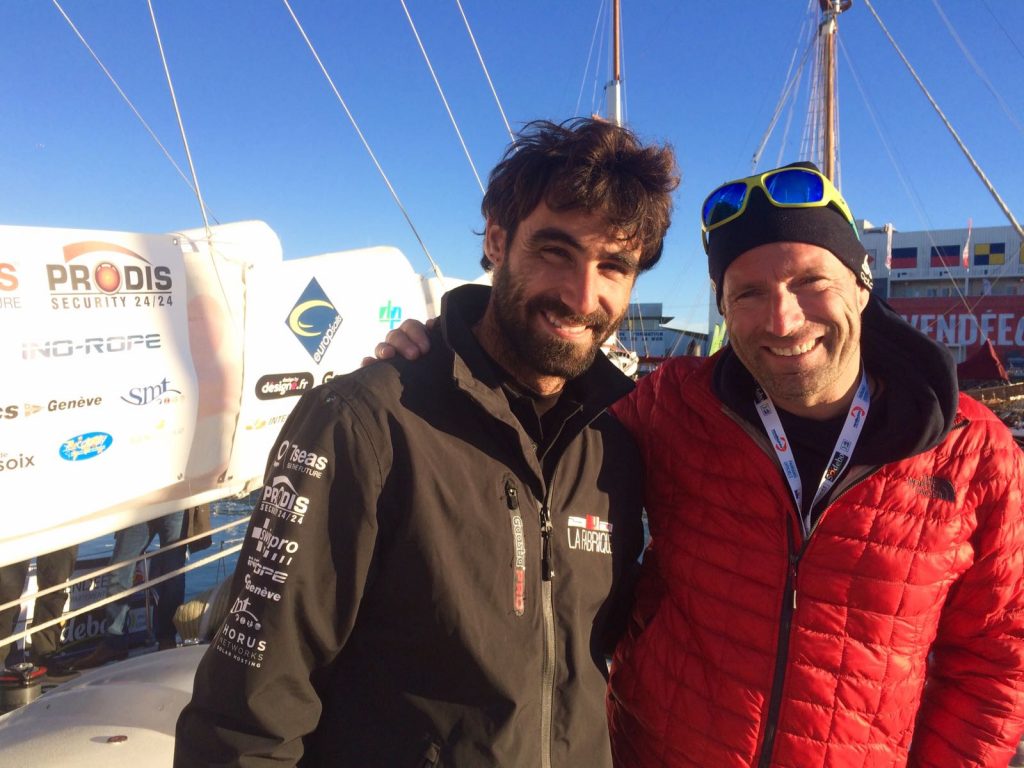
Summer is here!
Raphaël Domjan and the SolarStratos team wish you a beautiful sunny summer!
Our test pilot returns
Our test pilot, Miguel A. Iturmendi, is back in Payerne and his welcome return means that we can resume our 2021 training campaign!
The year is packed with prospects, but our primary objective is to prepare Raphaël Domjan to fly SolarStratos solo.
Live from the Mission Control Centre
In what is an exciting development, our team can now monitor SolarStratos live from a Mission Control Centre installed at the base in Payerne. The telemetry-based system was designed in what has been a very successful collaboration between partners, Switch Production SA, and our technical team, Alexis and Yvan.
The system allows us to monitor the data that the pilot sees in his cockpit, in real time. Data on engine power and control, battery charge and voltage, are now shared directly between the aircraft and the base. This is a mandatory and undeniably positive step forward in terms of the coordination and management of future medium and high-altitude flights.
It’s all in the details!
SolarStratos has been fitted with wheel hubcaps; they provide an improvement in terms of aerodynamics, and they look good!
Success at EXPLORiT
SolarStratos, and the simulator in particular, is causing quite a stir at the new EXPLORiT centre located at the heart of the Y-Parc in Yverdon-les-Bains, with crowds of visitors keen to experience solar flight.
Over the course of three evening events, Raphaël Domjan and the team have welcomed the PlanetSolar Foundation and SolarStratos partners, sharing with them the opportunity to discover the exhibition and to present, in preview, the film ‘The Birth of a Dream’.
Digital communication
Raphaël Domjan has always said: “SolarStratos is a communication tool that makes it possible to highlight the potential of solar energy, aviation and the mobility of tomorrow.” With this in mind, and in view of the ongoing development of the project, an increased social media presence is essential.
To this end, SolarStratos is implementing a new approach focused primarily on digitalisation. The implementation of a new strategy, created in collaboration with the company, Up To You, will increase SolarStratos’ presence across digital platforms with the objective of boosting its message and ultimately, increasing its visibility and that of its partners. The aim is to develop a fun and dynamic audience that can identify with energy transition and the solar challenge.
The emphasis on digital communication further strengthens the institutional communications already in place.
Come and find us on:
Facebook, Instagram, Twitter, LinkedIn, YouTube
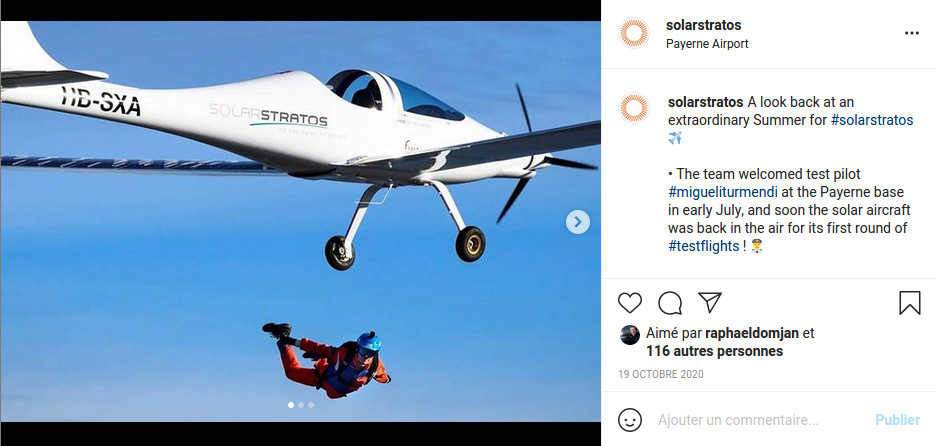
New website
On the 3rd of May, SolarStratos will launch its new website created in collaboration with new partner, communications agency Diabolo Design. The new look site will be more intuitive and adapted to current needs. It will also allow for easier navigation. There will be competitions, and the chance to fly virtually with SolarStratos, plus information on the team and all the latest news on the eco-adventure.
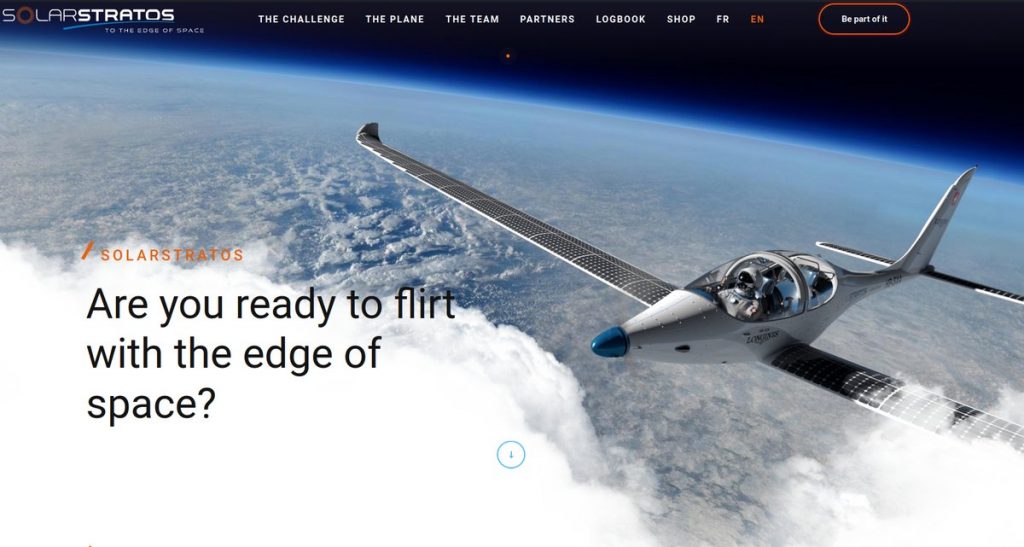
Film preview
Following the relaxation of pandemic health measures in Switzerland, SolarStratos was able to publicly air a preview of the documentary about the project at the new Explorit centre located at the heart of the Y-Parc in Yverdon-les-Bains.
This was an opportunity for guests to discover the area within the centre dedicated to SolarStratos and the PlanetSolar Foundation, and to watch the 52-minute documentary called ‘The Birth of a Dream’ that tells the story of the SolarStratos Mission from the inside out. The film is directed by Stéphane Chopard and produced by the Gédéon team.
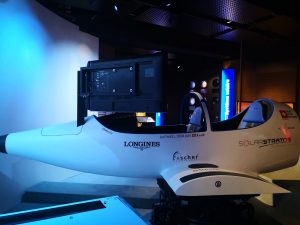
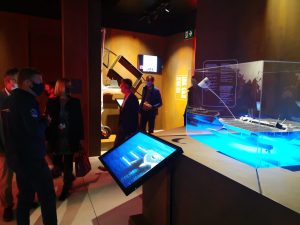
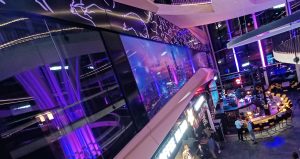
Flying electric!
As part of a programme about innovation in Europe by France Télévisions, a TV crew recently shadowed Raphaël Domjan during his preparations and training. The two-day shoot coincided with our pilot introducing an airline pilot to electric aviation and executing a successful parachute training jump.
The flight took an educational turn as Raphaël introduced Patrick Senn, an experienced airline pilot, to the possibilities of electric aviation. It was a wonderful flight and a great opportunity for an exchange of ideas between two pilots and friends.
For the parachute jump, Raphaël was accompanied by Géraldine Fasnacht, a wingsuit pilot in her own right and the SolarStratos in-flight safety manager. The two enjoyed an incredible tandem jump from a Heli-Lausanne helicopter with the city of Lausanne and Lake Geneva as a backdrop.
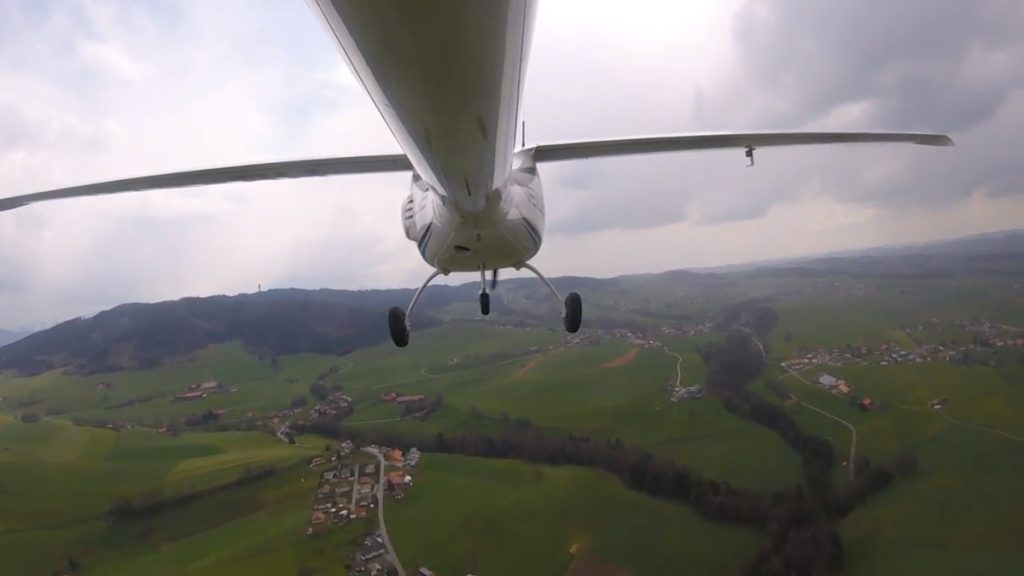
The fuselage comes home
Having passed the load test, the upgraded fuselage is back in Payerne and the team is busy reassembling the plane and preparing it for the first round of test flights scheduled for April.
To begin with, SolarStratos will undergo low- and then high-speed taxi tests with the solar panels connected, before taking off armed with a new permit to fly issued by the Federal Office of Civil Aviation.
An even bigger and better welcome!
During the winter, the SolarStratos team spent time improving the interior of the Payerne hanger to make the base even more welcoming to visitors.
The team has increased the visibility of partners and sponsors who support the eco-adventure on a daily basis by making their branding much more prominent and outside, they have installed electric vehicle charging terminals courtesy of official supplier, Green Motion.
Thank you so much Green Motion for your unwavering support!
Mission Control Center
A Mission Control Centre was planned from the very beginning of the SolarStratos eco-adventure and against the backdrop of last year’s successful flights and in view of the forthcoming resumption of regular flights, the time has come to launch it.
Positioned at the centre of operations at the Payerne base, the Mission Control Centre will allow the flight management and technical teams to follow the SolarStratos flights in real time.
The Mission Control Centre is portable and is fully equipped for operational flight management, with two 65” screens and a virtual cockpit.
Voiture aux couleurs de SolarStratos
Thanks to our official supplier, the Leuba Group, Raphaël Domjan is driving a new Mercedes EQA 250 (rechargeable electric / plug-in), branded SolarStratos!
A huge thank you to the management of Leuba Group for your unconditional support!
The fuselage passed with flying colours
In a welcome step forward for the technical team and their ongoing preparations towards getting SolarStratos airborne again, the recently modified fuselage was successfully load tested this month as part of the process of recertifying the aircraft for a take-off weight of 650 kg fully loaded.
Flight planning
Getting SolarStratos’ pilot and mastermind back behind the controls of the aircraft and working towards solo flights is a priority for the group and to this end, the technical team, Miguel A. Iturmendi (test pilot) and Thomas Sandmann (aeronautical engineer), have been working with the Federal Office of Civil Aviation on a detailed plan for test flights in 2021.
SolarStratos is broadcast from Paris to China
Our eco-explorer, Raphaël Domjan, travelled to Paris this month to visit Chinese broadcaster, CGTN (formerly CCTV-9 and CCTV-News) for a discussion on aviation of the future and to present the SolarStratos eco adventure. This was a fantastic opportunity for our Solar plane to travel virtually!
Towards a brighter future
The French expression ‘On va vers le beau’ translates loosely in English as ‘Towards a brighter future’ and it is perfectly suited to this time of the year when spring is on the horizon! But that’s not all, the maxim is also the name of a programme broadcast on RTS La 1ère, hosted by Jonas Schneiter, that is dedicated to ground-breaking projects emerging from the French-speaking part of Switzerland.
The host invited Raphaël Domjan to present the SolarStratos mission and so it was only natural that they prepared for the show by flying an electric plane! Broadcast is scheduled for March.
Fully charged and ready for action
SolarStratos kicked off 2021 with renewed energy! Despite the pandemic and current health measures, the entire team was able to meet via video conference to review the achievements of 2020 and to prepare and plan for the coming months. Top of the agenda was the resumption of test flights in the spring and the ongoing training for Raphaël Domjan, our pilot and man behind the project.
A more efficient aircraft
Our solar aircraft is currently with our partner, ElektraSolar, in Germany, where it is undergoing some improvements ahead of the next round of test flights. By enhancing the aerodynamics and increasing battery life, it should be possible to reduce the total weight of the aircraft while ensuring maximum safety. Quite a challenge for our technical team!
New electrical circuit
SolarStratos will be equipped with an upgraded electrical system and new batteries. These modifications will allow more power from the batteries and will improve their heat management.
In addition, a new display providing more details to the pilot on the general conditions of the electrical system, will be installed in the cockpit.
Come and find us at EXPLORiT
Il y a quelques semaines, nous vous annoncions l’incroyable opportunité pour la Fondation PlanetSolar et l’aventure SolarStratos de rejoindre EXPLORiT et d’y installer un stand permanent. C’est chose faite.
Dès le mois d’avril, les visiteurs auront la possibilité de retrouver l’histoire du premier tour du monde en bateau solaire, les projets et éco-aventures réalisés par Raphaël Domjan et son équipe, ainsi que le simulateur de vol avec lequel notre éco-explorateur s’est entraîné pour préparer les premiers vols à bord de SolarStratos.
Le stand abritera également la Fondation Race for Water, qui a repris le bateau PlanetSolar.
Lien vers EXPLORiT : https://explorit.ch/fr/
Ground vibration test
The long awaited ‘Ground Vibration Test’ was carried out in Payerne earlier this month much to the delight of the technical team. It was managed by a German expert and enabled the team to collect a maximum of data relating to the aircraft’s potential, particularly during flights at high altitude.
Preparing for next season
The winter break coincides with some scheduled maintenance and development work ahead of next season, so SolarStratos will travel to our partner, ElektroSolar, in Germany, where the batteries and management system will be replaced, along with a few other things.
New official partner: Active Solar joins our eco adventure
We are delighted to announce a new partnership with Active Solar (Active Niche Funds SA), the leading investment fund specialising in the global solar energy sector. Launched in 2008, the Lausanne-based company is an investment fund open to the public, with daily liquidity. It was the first to specialise in the solar sector.
The arrival of Active Solar represents a significant opportunity, not only for the success of the SolarStratos mission, but also for the promotion of the economic potential of solar energy.
Raphaël Domjan and the SolarStratos team are thrilled with this partnership and extend their thanks to the leaders of Active Solar for their trust. The SolarStratos team also extends its gratitude to the rest of its partners for their continued support. They are delighted to continue this eco adventure with them!
Happy New Year celebrations!
Raphaël Domjan and the SolarStratos team members wish you and your loved ones a Merry Christmas and a Happy New Year 2021!
In these troubled times, we would like to thank you for your loyalty. 2020 has been a complicated year and we are sincerely grateful for your continued support. Fortunately, together, we have succeeded in setting two world records which have allowed us to convey our optimistic message about a world that is more respectful of the climate and the environment.
We look forward to seeing you again next spring, take good care of yourselves and à bientôt!
StratoTime
As a thank you, we offer you a retrospective of our 2020 activities.
Night flight for Raphael
Winter time, shorter days, longer nights, all of this could be a bit of a morale killer. None of this for Raphaël Domjan. The opportunity for him to do night training flights and brave the darkness, with his first flight from Geneva Airport, one of our valued partners.
Second life
In our previous newsletter, we were pleased to announce our presence at EXPLORiT, a concept dedicated to children aged 0 to 12 and their parents who want to discover the world of science and technology, which will open during the winter of 2020/2021. We are materialising our entry with the installation of the PlanetSolar simulator, which is back in Yverdon-les-Bains, after having completed the first solar-powered world tour. Thanks to it, we will be able to make young and old dream. We are already looking forward to this new eco-adventure with our friends from EXPLORiT.
Two new partners
We are pleased to announce the arrival of two new partners. The first is the Office National d’Etudes et de Recherches Aérospatiales (ONERA). It is the main French research centre in the aeronautics, space and defence sector.
The second, Segula Technologies, is a French group active in 30 countries. A world leader in engineering, it places innovation at the heart of its strategy and carries out projects ranging from studies to industrialisation and production in fields such as automotive and aeronautics.
We welcome them and thank them for their confidence. Raphaël Domjan and the entire SolarStratos team would like to take this opportunity to thank all of our partners who have supported us throughout our eco-exploration, especially in these difficult and uncertain times. Thank you all for being at our side.
SolarStratos to the edge of space…
While test flights and world premieres are already history, the team has been busy on a number of different fronts. One of the more prominent ongoing projects is a documentary called “To the edge of space”, directed by Stéphane Chopard that chronicles the SolarStratos project since its inception. Co-produced by RSC Film Productions and Gedeon Programs, the first instalment will be delivered to Planète+ and RTS at the end of the year for broadcast in 2021.
“The objective of the documentary is to present this extraordinary human adventure against its backdrop of technology and innovation,” explained Stéphane Chopard. “The script writing and editing are currently underway in Paris. The story starts from Raphaël Domjan’s dream and depicts the different stages of the adventure, its challenges, successes and doubts. By telling the story, the documentary seeks to demonstrate that technology available today can allow for a dream of a better world.”
…to the road, in an electric car!
“A CONTRESENS – Voiture électrique, la grande intoxication ?”
This was the tantalising title of an evening hosted by Raphaël Domjan and the PlanetSolar Foundation at the beginning of October at the Arcades cinema in Neuchâtel.
The meeting was scheduled to coincide with the documentary of the same name, directed by Jérôme Piguet, following a lengthy investigation by pioneer, Marc Müller, who has done multiple world tours in an electric car and is a specialist in renewable energies for the Federal Office of Energy. In his documentary, alongside his team from Nous Production, he counters the lies told about the electric car.
After the documentary was aired, the debate was heated. Raphaël Domjan, Marc Müller and Jonas Schneiter exchanged their points of view on the development of the electric car and the audience was able to shape its own opinion on electric mobility and its future. It was a constructive and enriching evening and our thanks go to those that joined us. The documentary can be viewed on Swisscom TV.
SolarStratos at EXPLORiT
Just a stone’s throw from the SolarStratos headquarters at the heart of the Y-Parc technology centre, ‘Kindercity’ is due to open under the EXPLORiT banner. Kindercity is a concept dedicated to children from 0 to 12-years-old and parents wishing to discover the world of science and technology. It is scheduled to open this Autumn 2020.
PlanetSolar Foundation and SolarStratos will be making the most of this incredible opportunity to set up their own area where they will be able to share world premieres achieved on water and in the air! It will also be an opportunity to highlight the potential of renewable energies as demonstrated by Raphaël Domjan and his projects in Switzerland and abroad.
The SolarStratos team wishes Explorit every success and looks forward to the opening!
Link to EXPLORiT: https://explorit.ch/fr/yverdon







